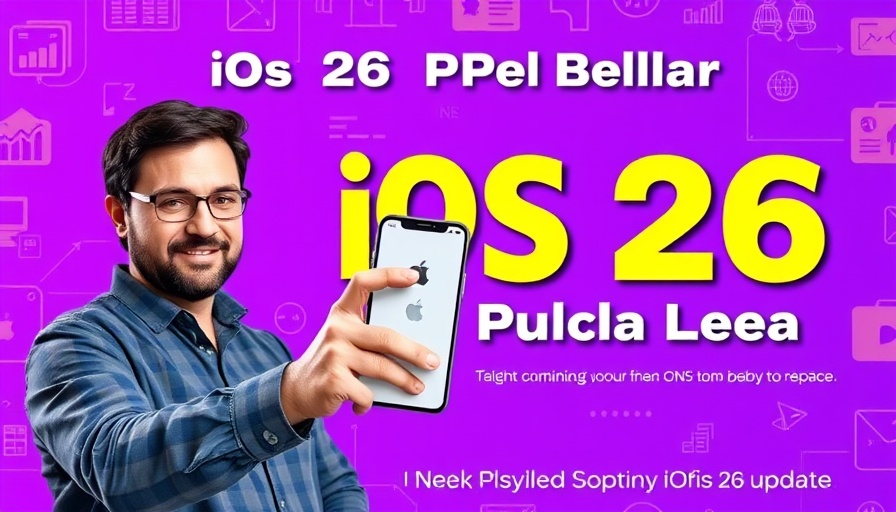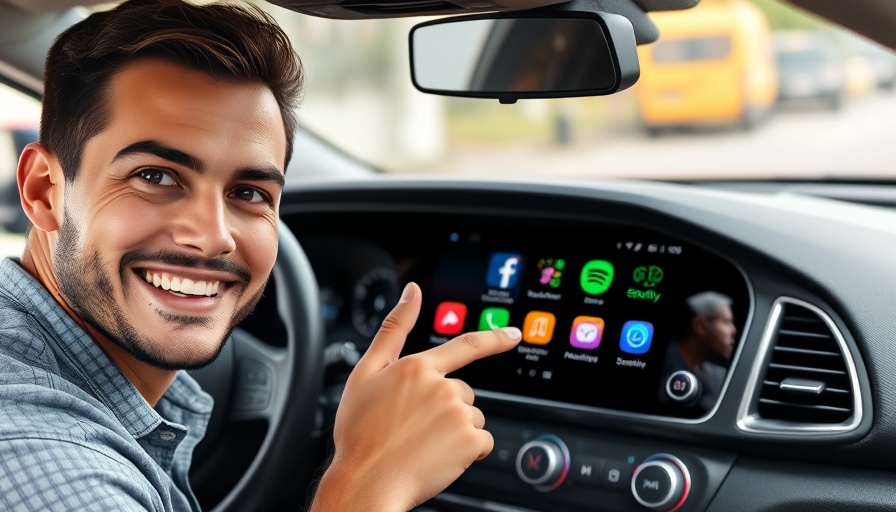
Is the iPhone Facing a Real Threat from AI?
As the battle for the future of computing intensifies, a pressing question emerges: Can AI and wearable technology really dethrone Apple's iPhone? The recent discourse surrounding this topic highlights a significant investment from tech giants in artificial intelligence, particularly Meta's Mark Zuckerberg, who is pouring resources into smart glasses and AI developments. Despite the hype, Apple continues to dominate, having sold over three billion iPhones. According to Apple's CEO Tim Cook, while AI technologies are on the rise, they are more likely to serve as complementary devices rather than substitutes for the iPhone.
In 'Sorry, Zuck. AI Won't Topple the iPhone Empire', the discussion dives into the evolving tech landscape, analyzing whether AI can rival Apple's established dominance in mobile computing.
A New Perspective on AI's Role
Cook firmly believes that the iPhone will remain integral to personal computing, serving as a portal to access the myriad capabilities of AI. Studies reveal that consumer interest in AI-driven upgrades to smartphones is tepid at best, with only 11% citing AI enhancements as a motivating factor for their next phone purchase. Instead, factors such as price, battery life, and storage capacity remain paramount. In this landscape, it's clear that while advancements in artificial intelligence are exciting, they are not compelling enough to drive a mass shift away from current mobile devices.
The Excitement of Apple's Next Innovations
Despite criticisms about Siri's delays in new features, there's mounting enthusiasm for what's next at Apple. Recent reports indicate a strong product pipeline, with Cook expressing unparalleled excitement for upcoming products, possibly including a folding iPhone or a new, smarter HomePod. These developments illustrate how Apple is positioning itself at the forefront of this new age of technology, not ceding any ground to competitors like Meta. Rather than seeing AI as a threat, Apple seems poised to leverage it in enhancing user experiences on its devices.
Looking Ahead: iPhone's Enduring Relevance in a Changing Landscape
As other companies race toward AI integration in products like smart glasses, the iPhone stands firm as a hub for accessing personal data while maintaining user privacy. Apple's commitment to protecting user information offers a significant advantage, especially in an era where data security is paramount. The integration of AI into everyday devices could enhance iPhone capabilities, making it more indispensable rather than replaceable in the consumer tech ecosystem.
In conclusion, while the competition in AI continues to heat up, the iPhone's stronghold appears unshakable. Entrepreneurs and tech enthusiasts should keep an eye on Apple’s forthcoming innovations which promise to redefine how users interact with technology. If you have thoughts on this evolving landscape, share your opinions with us!
 Add Row
Add Row  Add
Add 




Write A Comment